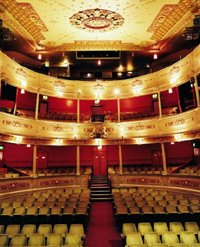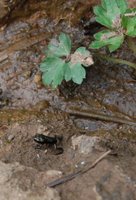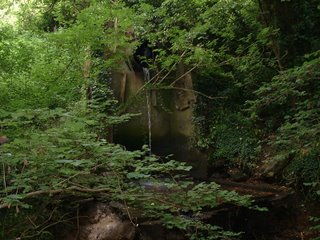I was shocked to read this article in this week's edition of New Scientist. Apparently many african citizens who have become successful in our large western cities pay more than one would pay for fillet steak in order to obtain bushmeat, often primate, at illegal markets. Read on unless you are squeamish!MEAT from wild primates killed in Africa is landing on dinner plates in North America and western Europe. Offered for sale in clandestine markets from Los Angeles to Paris, primates make up nearly a third of the illegal international trade in bushmeat, according to a survey of markets in seven cities.
Rumours of the existence of such markets have floated around for years, says wildlife biologist Justin Brashares of the University of California, Berkeley. Confirmation came from a chance encounter with a taxi driver from Ghana two years ago. When asked if he missed eating bushmeat, the driver said, "I don't, really." He then offered to show Brashares a market in a warehouse in Brooklyn, New York, where bushmeat is sold.
"I was shocked that open markets sell large quantities of African bushmeat in major cities outside of Africa," Brashares says.
Starting with his initial contact, Brashares has recruited 15 volunteers, expatriates from west Africa to visit illegal markets in Paris, Brussels, London, New York, Montreal, Toronto and Chicago. A market in Los Angeles has just been added to the list.
Two volunteers separately recorded the amount of bushmeat for sale at one sample location in each city. Just over 6000 kilograms of meat moves through these seven markets each month, Brashares told the Society for Conservation Biology when it met in San Jose, California, on 28 June. This probably underestimates the international trade, itself only a tiny fraction of the wild meat hunted in Africa, most of which is eaten locally. Primate meat makes up a larger share of what is sold overseas compared with markets in west and central Africa.
"I have 27 records of chimpanzee and gorilla parts being sold in the markets," Brashares told New Scientist. "In each case it was not a complete body, but a hand, leg or, in two cases, a head." Guenon monkeys and baboon species appear to be a big part of the trade, he says. Small antelopes called duikers are the most commonly sold animal, and the rest of the trade is made up of rodents, reptiles and birds.
“Bushmeat is part of a luxury trade. African nationals could buy a filet mignon in London for the price of a baboon”
Bushmeat is often concealed beneath legal shipments of smoked or dried fish, but it is difficult to say how much is imported because customs officials in the US and the UK lump all illegal meat together in their reports. The sellers don't distinguish between different species, even in the markets in Africa, and there is a good proportion that Brashare's volunteers can't identify.
"The bushmeat trade is huge and supports thousands of people in Africa," says Glyn Davies, director of conservation for the Zoological Society of London, who pointed out that bushmeat traders are occasionally arrested in London. He suggests that cane rats and duikers, for example, which live near farms, could possibly be harvested sustainably to support local people. "But that is very different to harvesting large mammals such as great apes and elephants," he says. "It would be very hard for that to be sustainable."
Davies says that central governments in Africa need to be made aware of the millions of dollars being spent on the parallel economy of the bushmeat trade, and they need to work with the forestry industry to regulate hunting at the critical forest frontier. People in the know keep the international markets relatively buoyant, but the demand isn't driven by need. Prices for bushmeat are higher than for legal meat.
"It's part of what is clearly a luxury trade," says Brashares. "They could go and buy a filet mignon in London for what they're paying for baboon."
From issue 2559 of New Scientist magazine, 08 July 2006, page 8



















